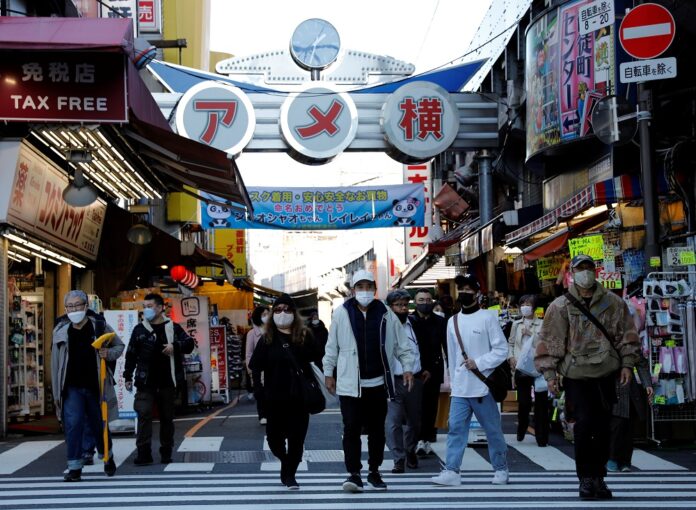Pedestrians wearing protective masks, amid the coronavirus disease outbreak, make their way at the Ameyoko shopping district in Tokyo December 1, 2021. — Reuters pic
TOKYO, Dec 1 — Japan has expanded its travel ban on foreigners coming into the country, preventing entry to those with resident status from 10 southern African nations.
Two Japanese airlines ANA and JAL also said they were suspending new reservations for international flights to Japan until the end of December and NHK public television said the government was seeking a halt to all such reservations.
Japan took some of the strictest steps globally on Monday by closing its borders to non-Japanese for about a month in light of the emergence of Omicron. A day later, Japan’s first Omicron case — in a Namibian diplomat — was discovered.
Japanese media also reported today that a second case of the Omicron virus had been confirmed in a traveller. NHK said it was a foreign man and FNN television said it was a traveller from Peru.
The border closing affecting residents of southern African states will be in effect from midnight today for at least a month. It applies to foreign residents from South Africa, Eswatini, Namibia, Zambia, Malawi, Mozambique, Lesotho, Angola, Botswana and Zimbabwe.
“From the view of prevention, we won’t just restrict new entry by foreigners but also returning foreigners with resident status, unless there are special extenuating circumstances,” chief cabinet secretary Hirokazu Matsuno told a news conference.
“We will maintain a sense of urgency and keep track of the situation in various countries to be able to respond quickly and flexibly.”
Regarding other passengers on the plane with the Namibian diplomat, he said none of the 70 people designated as close contacts had shown signs of falling ill.
Health Minister Shigeyuki Goto later said his ministry was in contact with local governments to keep an eye on the fellow passengers.
Japanese border measures were loosened slightly a few weeks ago, but all of those changes have been rolled back in a move generally applauded by the public and accepted by business leaders, although some sectors of the economy dependent on foreign trainees could be hit if the closing is extended. — Reuters


